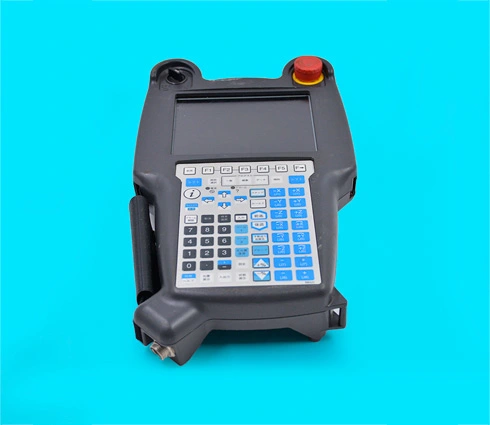When it comes to keeping your FANUC robot running like a well-oiled machine (literally), preventative maintenance is key. Skipping routine checks can lead to costly breakdowns, unplanned downtime, and expensive repairs. But the good news? Most of this can be avoided with a structured preventative maintenance checklist.
In this guide, we'll walk you through everything you need to inspect, clean, and monitor—on a daily, weekly, monthly, and annual basis—to ensure your FANUC robot stays productive, safe, and reliable for years to come.

A FANUC robot is an investment. Like any high-performance system, it needs regular care to maintain:
Precision and repeatability
Safety standards
Uptime and productivity
Long-term return on investment
Even minor wear, like dirty filters or low grease levels, can cause issues if ignored over time. Preventative maintenance is cheaper than emergency repairs.
Performed by: Operators or Technicians
Goal: Ensure clean, safe, and error-free operation
| Task | Description |
Visual Inspection | Look for oil leaks, loose wires, abnormal wear, or physical damage |
Clean Surrounding Area | Remove debris, oil spills, and obstacles near the robot |
Check Teach Pendant | Confirm buttons, screen, and e-stop are functioning properly |
Listen for Abnormal Noises | Grinding, clicking, or high-pitched whines could indicate mechanical problems |
Verify Safety Devices | Test light curtains, door interlocks, and emergency stops |
Check Air Supply | Ensure air pressure is within spec (if applicable) and free of moisture |
Performed by: Maintenance Technicians
Goal: Catch early-stage issues
| Task | Description |
Check Cable Management | Inspect for fraying, bending, or excessive tension on cables and hoses |
Inspect EOAT (End-of-Arm Tooling) | Make sure tool is tightly secured and operating as expected |
Test Brake Functionality | Verify brake engagement/disengagement during robot power-down |
Inspect Mounting Bolts | Ensure all robot base and controller bolts are tight and secure |
Clean Fan Filters | Prevent controller overheating by removing dust buildup |
Performed by: Robot Maintenance Team or Qualified Personnel
Goal: Maintain performance and extend robot life
| Task | Description |
Backup Programs | Save robot programs and parameters in case of controller failure |
Inspect Grease Levels | Check axes for proper lubrication and grease condition |
Review Error History | Look for recurring alarms or motion faults |
Test Repeatability | Use a dial indicator or laser tracker to verify precision |
Controller Ventilation | Ensure cooling fans and heat exchangers are working properly |
| Task | Description |
Replace Fan Filters | If dirty or worn beyond cleaning |
Check Robot Zero Position | Calibrate if needed to ensure tool path accuracy |
Inspect Internal Wiring | Look for signs of heat damage or corrosion |
Perform Joint Movement Tests | Move each axis and watch for resistance or backlash |
Clean Controller Interior | Use ESD-safe tools and vacuum to remove dust (with power OFF) |
Performed by: Certified FANUC Technician or Senior Maintenance Team
Goal: Deep inspection, calibration, and part replacement
| Task | Description |
Replace Grease | Drain and replace grease in joints (especially J1–J6 for 6-axis robots) |
Battery Replacement | Replace backup batteries in controller and robot arm |
Encoder Calibration | Use FANUC software tools to recalibrate robot encoders |
Safety Audit | Full inspection of safety circuits, light curtains, and fencing |
Software Updates | Install official FANUC firmware and security patches |
Replace Worn Components | Replace damaged cable carriers, covers, or seals |
FANUC Grease Gun Kit – Makes greasing J1–J6 easier and cleaner
Roboguide Software – Great for simulating robot paths and backup/restore
FANUC Maintenance Manuals – Always follow model-specific documentation
Don't wait for failure. These parts are worth stocking:
Backup batteries (for robot arm and controller)
Fan filters and fans
Spare teach pendant
Grease (FANUC-approved only)
Encoder cables
Fuses and relays
Create a logbook or digital log for every maintenance check.
Use lockout/tagout procedures before performing any maintenance.
Train your team regularly—even operators should know what to look for.
Schedule annual inspections with a certified FANUC technician.
Preventative maintenance is the key to maximizing the performance and reliability of your FANUC robot and its fanuc robot parts. By following this detailed maintenance checklist—daily to annually—you'll avoid costly breakdowns, extend the lifespan of your equipment, and maintain consistent production quality.
Think of it as giving your robot a regular "health check."The effort you invest in small, regular tasks pays off in big, long-term gains.